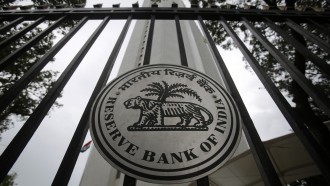
Reserve Bank of India cautions against pitfalls of 'Make in India'
 Subsidising inputs to labour-intensive industries has not really paid off for India over the years, says Dr. Rajan
Subsidising inputs to labour-intensive industries has not really paid off for India over the years, says Dr. RajanIt would be a mistake to think that the world needs another export-driven China, Dr. Raghuram Rajan, Governor, Reserve Bank of India (RBI), said this week while cautioning against various strategies usually associated with the “Make in India” campaign. Prime Minister Narendra Modi first launched the “Make in India” campaign on August 15, 2014, and had emphasised on the need to boost manufacturing and reduce imports. However, criticism of the initiative has gained pace in recent weeks along with a slowdown in manufacturing and exports, and the lack of a clear policy. However, the RBI chief’s speech on the loopholes in the “Make in India campaign is perhaps the first official account of such dissent. Speaking at the Bharat Ram Memorial Lecture on December 12, 2014 in New Delhi, Dr. Rajan said that instead of aping China’s growth model, it would be wise for emerging countries such as India to rely on regional and domestic demand for growth. “I am not advocating export pessimism here,” Dr. Rajan said, adding that “Instead, I am counselling against an export led strategy that involves subsidising exporters with cheap inputs as well as an undervalued exchange rate, simply because it is unlikely to be as effective at this juncture.” Dr. Rajan also warned against focussing on just one sector such as manufacturing. He said that it might have worked well for China but conditions for India are different. He said that the world cannot accommodate another export-led China, and India must also take into account competition against industrial countries and China. “Export-led growth will not be as easy as it was for the Asian economies who took that path before us,” he warned. Dr. Rajan also said that it would be wrong to consider “Make in India” as a strategy of import substitution through tariff barriers. This ends up in reducing domestic competition, making producers inefficient, and increasing costs to consumers, he said. Dr. Rajan suggested that India should encourage entrepreneurship and strive to provide public goods and finances required to help them succeed. He also said that the introduction of GST and creating a sustainable unified market in India will help the “Make in India” initiative become “Make for India”. He added that India must play a greater role in ensuring that industrial countries do not place restrictions in global trade to ensure that India has a steady supply of oil and other commodities in future.
This article was published on December 13, 2014.






 to success.
to success.